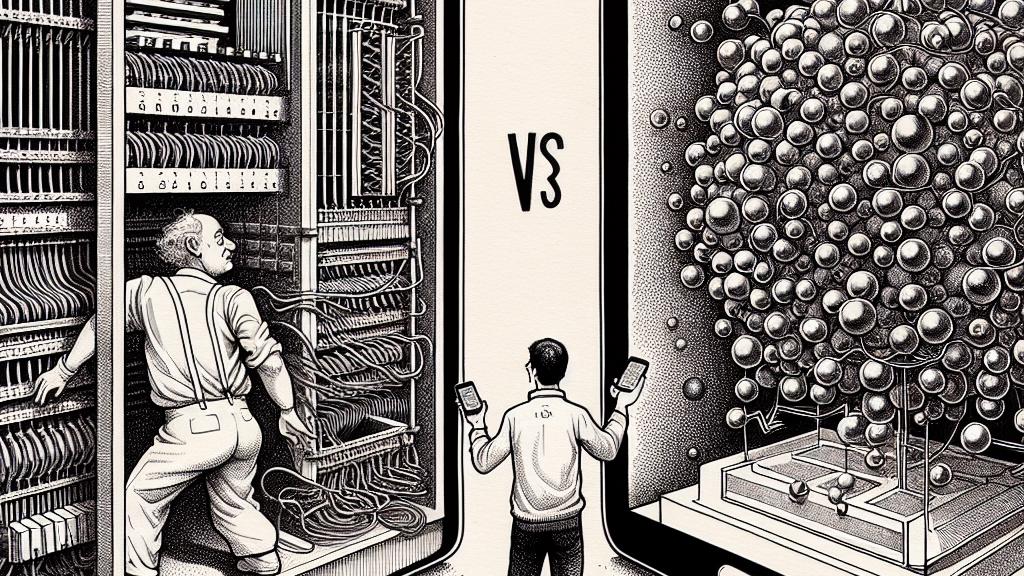The Triumph of Classical Computing Over Quantum Challenges
Overview
- In a stunning twist, classical computers surpassed quantum counterparts in complex simulations.
- Researchers uncovered the fascinating confinement phenomenon, showcasing classical computing advantages.
- This groundbreaking work clarifies the roles of classical and quantum computing, reshaping future possibilities.

A Thrilling Showdown: Classical vs. Quantum Computing
In an astonishing revelation, researchers from the Flatiron Institute's Center for Computational Quantum Physics in the United States achieved what many deemed impossible: classical computers outperformed quantum computers in a challenging task! They tackled a highly intricate simulation involving a two-dimensional quantum system characterized by flipping magnets, a task that was thought to be the sole domain of quantum computing. As they crunched the numbers and applied sophisticated algorithms, the team not only solved the problem but did so with remarkable efficiency—so efficiently, in fact, that even a smartphone could accomplish the computation! This unexpected triumph highlighted the strengths of classical methods and raised intriguing questions about the tradewinds of computational power.
Unveiling the Marvel of Confinement Phenomena
At the heart of this groundbreaking study lies the captivating concept of confinement, a behavior that had only been seen in one-dimensional quantum systems until now. The researchers, through critical innovation, applied this concept within a two-dimensional framework, leading to astonishing new insights into how confinement influences quantum simulations. This fundamental discovery clearly illustrates the distinct boundaries of what classical and quantum computers can achieve, almost akin to drawing a map in a foggy landscape. While quantum technology is indeed promising and has a future full of possibilities, the effective application of classical approaches shines in specific scenarios, showcasing their inherent value and versatility.
A New Era: Implications for Future Research and Innovation
The implications of these findings extend far beyond mere academic curiosity. They stimulate a vibrant dialogue about the comparative capabilities of quantum and classical computing, encouraging exploration and innovation in computational methods. As scientists dive deeper into this uncharted territory, we can expect profound advancements that could transform various industries, from cryptography to materials science. Rather than fading into obsolescence, classical computing proves itself to be an indispensable ally, especially in particular problem domains. This fascinating interplay between classical and quantum realms not only inspires optimism but hints at a future ripe for discovery and breakthroughs that could redefine technology as we know it.

Loading...